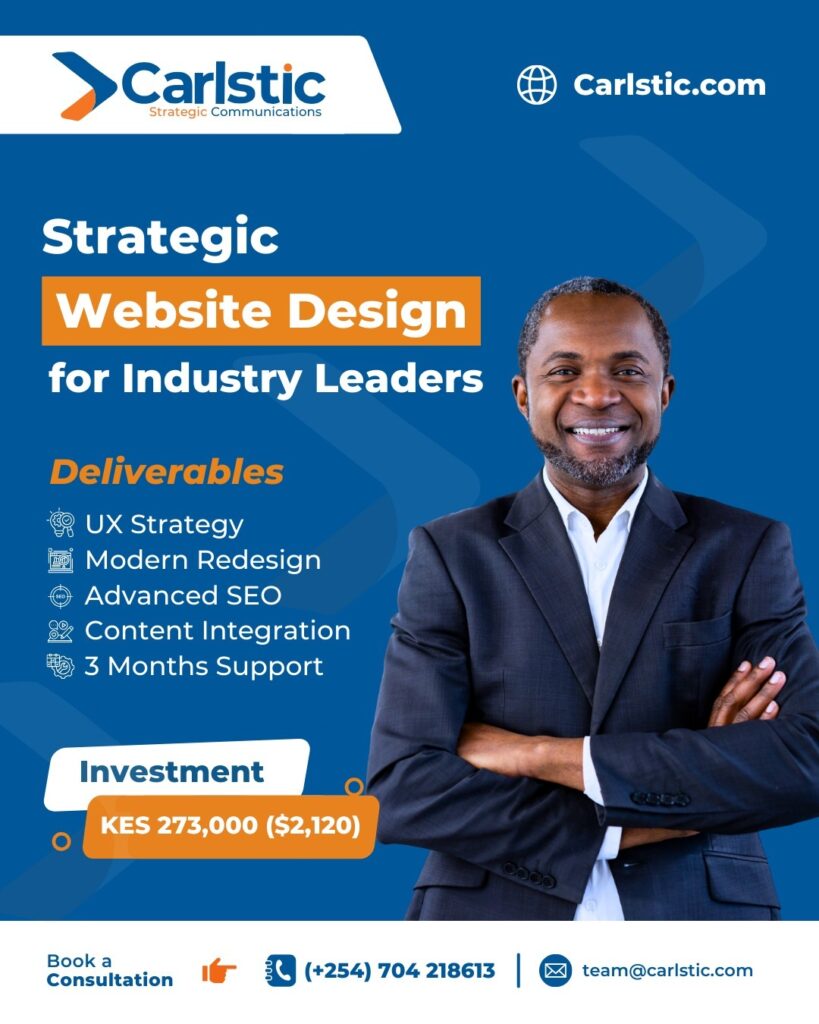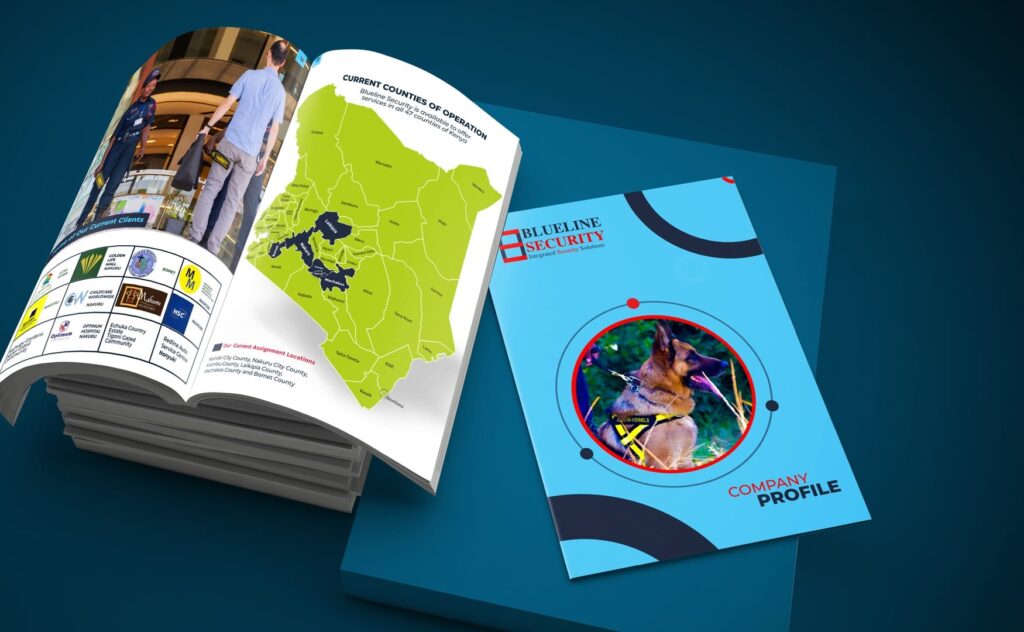Today, a website is no longer an accessory, it’s an operational necessity. Yet, the true cost of building an effective website remains widely misunderstood. Businesses often focus on the upfront figure rather than the strategic value behind it.
The cost of web design in Kenya varies widely depending on purpose and scale. A simple business or personal website typically costs between KES 30,000 and KES 100,000, while e-commerce platforms with integrated payment systems range from KES 80,000 to KES 300,000. For large corporations or platforms requiring custom development, costs can easily exceed KES 300,000.
These estimates rarely include ongoing essentials such as:
Domain registration: KES 2,000–5,000 per year
Hosting: KES 3,000–10,000 per year
Content creation: KES 5,000–20,000
Maintenance and security: KES 10,000–30,000 annually
A website isn’t a one-time expense; it’s a living system that must evolve alongside the business. That evolution requires technical upkeep, content updates, and performance optimization, all of which contribute to long-term growth.
Cost vs. Value: What You’re Really Paying For
The biggest misconception around website pricing is that it’s all about design. In reality, you’re not just paying for how a site looks but for how it works. Cheap websites often fail to generate leads, convert visitors, or tell a brand story convincingly.
| Feature/Outcome | Basic Website (KES 30k–100k) | Strategic Website (KES 200k+) |
|---|---|---|
| Design | Template-based, minimal customization | Bespoke UX/UI aligned to brand goals |
| SEO Foundation | Weak or missing | Optimized structure with on-page and technical SEO |
| Content | Generic and text-heavy | Strategic storytelling that converts |
| Functionality | Static and limited | Lead generation tools, automation, analytics |
| Post-Launch Support | Minimal or none | Continuous improvement, data tracking |
| Business Outcome | Online presence only | Active growth and measurable ROI |
The contrast is clear: one gets you a website; the other gets you a business engine.
The Value vs. Cost Paradox
Spending KES 273,000 on a website may sound steep until you look beyond the surface. That investment covers a system designed for performance — built with scalability, optimization, and measurable results in mind.
A low-cost build might save you today but cost you later through missed conversions, redesigns, and poor customer experiences. The real expense often hides in the opportunity cost of what your website fails to achieve.
Businesses that invest strategically see the difference in performance — higher search visibility, better engagement, and consistent lead generation. That’s because a well-built website functions as part of a broader digital strategy rather than a stand-alone project.
Measuring What Matters
What makes a website valuable isn’t how it looks but how it performs. The key metrics that determine real impact include:
| Metric | Impact on Growth |
|---|---|
| Organic Traffic | Attracts potential customers at zero cost per click |
| Site Speed | Improves engagement, SEO ranking, and conversions |
| Engagement Metrics | Shows how effectively the site holds attention |
| Conversion Rate | Proves whether visitors are turning into paying clients |
When tracked and optimized, these metrics reveal the true return on investment — not just how much you spent, but how much your digital presence is earning back.
Turning a Website into a Growth Engine
A website should be more than a digital brochure. It should communicate trust, drive inquiries, and reflect a brand’s ambition. In an economy where business decisions happen in seconds, your website is often the first and most influential touchpoint.
That’s where strategic partners like Carlstic come in, combining brand strategy, user experience, and technical SEO to create platforms that perform, not just exist.
Your digital presence should be earning you more than views, it should be generating business.
Book a consultation today and discover how to turn your website into a measurable growth engine.







